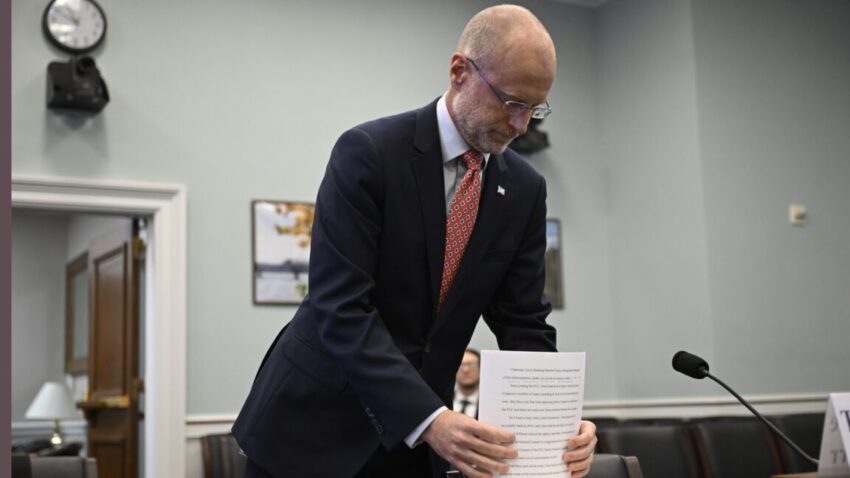
isps created so many fees that fcc In a significant shift in regulatory policy, the Federal Communications Commission (FCC) is moving to eliminate the requirement for Internet Service Providers (ISPs) to disclose all fees associated with their broadband services.
isps created so many fees that fcc
Background on Fee Disclosure Regulations
The FCC’s current rule, which mandates that ISPs itemize various fees in their broadband price labels, was implemented in April 2024. This regulation was designed to enhance transparency and protect consumers from misleading pricing practices. The rule specifically targets recurring monthly fees that providers impose at their discretion, which are not mandated by any government authority. The intention behind this regulation was to ensure that consumers are fully informed about the total cost of their internet service before making a purchase.
Prior to the implementation of this rule, many consumers found themselves surprised by additional charges on their monthly bills that were not disclosed upfront. These fees could include a variety of charges such as installation fees, equipment rental fees, and other service-related costs. The FCC aimed to combat this lack of transparency by requiring ISPs to clearly list all such fees in their advertising and billing practices.
Chairman Brendan Carr’s Proposal
Recently, FCC Chairman Brendan Carr has proposed the elimination of this fee disclosure requirement, responding to requests from cable and telecom lobby groups. Carr argues that the requirement to list every fee is burdensome for ISPs and may not be necessary for consumer protection. This proposal has sparked a debate about the balance between regulatory oversight and the operational flexibility of service providers.
Arguments for Eliminating the Fee Disclosure Requirement
Proponents of Carr’s proposal argue that the current rule imposes unnecessary administrative burdens on ISPs. They contend that the requirement to itemize every fee could lead to increased operational costs, which may ultimately be passed on to consumers in the form of higher prices. Additionally, they assert that the market itself can provide adequate consumer protection, as competition among ISPs will encourage them to maintain transparent pricing practices to attract and retain customers.
Furthermore, some industry representatives argue that the complexity of modern telecommunications services makes it challenging to list every fee accurately. They claim that the nature of service offerings is continually evolving, and as such, the fees associated with these services can change frequently. This fluidity could lead to confusion for both consumers and providers if fees are not consistently updated and communicated.
Concerns from Consumer Advocacy Groups
On the other hand, consumer advocacy groups have expressed significant concerns regarding the potential elimination of the fee disclosure requirement. They argue that transparency in pricing is crucial for consumer protection, particularly in an industry where many consumers already feel overwhelmed by the complexity of service offerings. Without clear and comprehensive pricing information, consumers may find it difficult to make informed decisions about their internet service providers.
Advocates for consumer rights emphasize that the elimination of the fee disclosure requirement could lead to a resurgence of misleading advertising practices. They fear that ISPs may revert to the tactics that prompted the original regulations—advertising deceptively low prices while obscuring the true cost of service through hidden fees. This could disproportionately affect low-income consumers who may be more sensitive to price changes and less able to absorb unexpected charges.
Implications of the Proposal
The implications of Carr’s proposal extend beyond just the regulatory landscape; they could significantly impact consumer behavior and the competitive dynamics within the broadband market. If the FCC moves forward with the elimination of the fee disclosure requirement, several potential outcomes may arise.
Impact on Consumer Trust
One of the most immediate consequences could be a decline in consumer trust in ISPs. If consumers perceive that providers are not being transparent about their pricing, they may become more skeptical of the services offered. This erosion of trust could lead to decreased customer loyalty and an increased willingness to switch providers, as consumers seek out companies that prioritize transparency and honesty in their pricing practices.
Market Dynamics and Competition
In a competitive market, ISPs may feel pressure to maintain transparent pricing to differentiate themselves from their competitors. However, if the regulatory environment becomes more lenient, some providers may choose to exploit the lack of oversight by introducing more fees without adequate disclosure. This could create a race to the bottom, where companies prioritize short-term profits over long-term customer satisfaction.
Potential Legislative Responses
The proposal to eliminate the fee disclosure requirement may also prompt legislative responses at both the state and federal levels. Lawmakers who prioritize consumer protection may seek to introduce new regulations that require ISPs to maintain transparency in their pricing practices, regardless of the FCC’s stance. This could lead to a patchwork of regulations across different states, complicating compliance for national ISPs and potentially leading to further consumer confusion.
Stakeholder Reactions
The proposal has elicited a wide range of reactions from various stakeholders in the telecommunications industry. While some industry representatives have welcomed the potential for reduced regulatory burdens, others have expressed concerns about the long-term implications for consumer trust and market competition.
Industry Support
Supporters of the proposal within the telecommunications industry argue that reducing regulatory burdens will enable ISPs to innovate and improve their services. They contend that by allowing providers more flexibility in pricing, companies can focus on enhancing their offerings rather than navigating complex regulatory requirements. This could lead to improved service quality and greater investment in infrastructure, ultimately benefiting consumers.
Consumer Advocacy Opposition
Conversely, consumer advocacy groups have been vocal in their opposition to the proposal. They argue that the elimination of the fee disclosure requirement undermines the progress made in consumer protection over the past few years. Advocates for consumers emphasize that transparency is essential for fostering a competitive market and ensuring that consumers have the information they need to make informed choices about their internet service.
Conclusion
The FCC’s proposal to eliminate the requirement for ISPs to disclose all fees represents a pivotal moment in the ongoing debate over consumer protection and regulatory oversight in the telecommunications industry. As the commission weighs the potential benefits of reduced regulatory burdens against the need for transparency, the outcome will likely have far-reaching implications for both consumers and service providers alike.
As discussions continue, it remains to be seen how this proposal will evolve and what impact it will have on the future of broadband pricing and consumer trust. Stakeholders on both sides of the issue will undoubtedly continue to advocate for their positions as the FCC navigates this complex landscape.
Source: Original report
Was this helpful?
Last Modified: October 9, 2025 at 3:36 am
6 views















